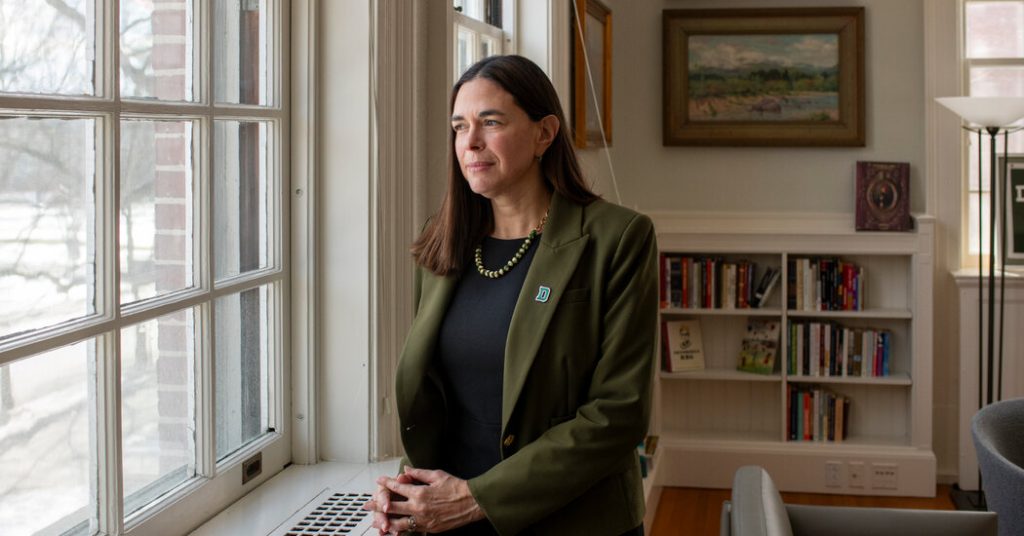The Faculty of Arts and Sciences at Dartmouth College recently voted to censure the university’s president, Sian Leah Beilock, for her decision to involve the police in removing a pro-Palestinian encampment on campus. This decision was seen as harmful to the community and disruptive to the university’s educational mission. The vote was close, with 183 in favor of censure and 163 against. Despite the censure, the university noted that it had no practical effect, and the board of Dartmouth expressed unanimous support for Dr. Beilock.
Dr. Beilock defended her decision, citing a reasonable and credible threat of violence as the reason for involving the police. However, many faculty members and students disagreed, arguing that the protesters had taken a vow of peace and that Dr. Beilock’s fears of violence were implausible. The incident resulted in the arrest of 89 individuals, including two faculty members. Dr. Annelise Orleck, a faculty member who was knocked to the ground during the incident, expressed gratitude for the censure vote and hoped that it would make future university presidents think twice before using violence on peaceful protesters.
The vote at Dartmouth was believed to be the first censure vote against a president in the university’s 255-year history. Faculty members who supported Dr. Beilock acknowledged that while the decision to involve law enforcement was difficult, there was disagreement on whether the action was taken too early. Similar incidents have occurred at other universities, such as Columbia University and the University of Southern California, where presidents faced censure or a vote of no confidence over their handling of pro-Palestinian protests.
Dr. Beilock, a cognitive scientist who previously served as the president of Barnard College, took on the role of president at Dartmouth last June. Despite the censure, she maintained the support of the university’s board and continued to explain her position to faculty members. The incident highlighted the ongoing tensions on college campuses surrounding issues of protest, free speech, and the appropriate response to peaceful demonstrations. The vote at Dartmouth and similar actions at other universities underscored the challenges faced by university leaders in navigating these complex and contentious issues.


